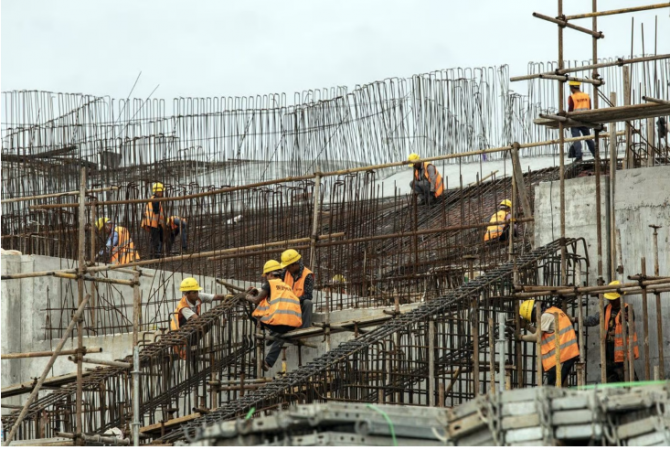
Beijing: A slump in the real estate market and China's strict coronavirus control policies are forcing some local governments to cut spending and scramble for new revenue sources.
The recent cuts in revenue targets by several local authorities are being attributed to the weak performance of the real estate market, falling tax receipts, the COVID-19 outbreak and natural calamities.
Beijing's zero-Covid policy, which relies on lockdowns, mass testing and quarantining in government facilities, has put additional financial pressure on local governments.
Also Read: Rural students in China face a class divide
Local governments' fiscal deficits and debt levels are expected to rise in the coming months, according to Samuel Kwok, head of international public finance for Asia-Pacific at Fitch Ratings.
According to Kwok, “Our assumption is that revenue is still stable but expenditure to support the economy will remain high. Fund transfers from the central government to local governments may also decrease next year.
China's premier Li Keqiang, at the annual parliamentary gatherings in March, pledged to transfer a record 9.8 trillion yuan (US$1.3 trillion) to local governments this year, an 18% increase from 2021.
But for some local governments, such as the city of Dongyang in Zhejiang province, even that isn't enough. Recently, Dongyang slashed its estimated annual budgeted revenue for this year by 12.7% to 7.86 billion yuan.
Also Read: Know The Interesting Facts About The US
In its revised budget report released earlier this month, the city government said that "there is still a gap between the city's newly available funds and the city's demand for additional spending."
We will actively take action to address this issue by implementing strict cost-cutting measures and requesting funds from the provincial government to reduce general expenditures.
Nan District of the sprawling city of Chongqing will use the 229.87 million yuan of budgetary savings for personnel relocation, salary adjustment and COVID-19 prevention and control within the public sector.
The Nan district government said in its revised budget report this month that a slowing Chinese economy, a sharp downturn in the real estate sector and tax exemptions mandated by the central government have put "unprecedented" pressure on fiscal revenue shortfalls.
“Unexpected factors, such as persistent sunny and warm weather and increased investment in wildfire prevention, when combined with the frequent occurrence of COVID-19 outbreaks exceeded expectations. Maintaining an annual balance of revenue and expenditure challenging Yes, it said.
Beijing has backed local tax reforms that could help diversify local revenue sources away from land sales. To enhance the monetary system and debt management, Shenzhen has been selected as a pilot city for national tax reform.
Also Read: Mozambican president inaugurates major FLNG venture in north
In an effort to ease mounting fiscal stress and debt risks, the Council of State in June introduced a number of initiatives to enhance the distribution of resources among local governments.
China has taken steps in recent years to help debt-ridden local governments, including suspending transfer payments from the central government.
Although actual fiscal revenue for the year may fall short of the budget by 3.4 trillion won, analysts at Ping An Securities believe the worst may be over for local governments as average spending is expected to decline in the coming months. There is a possibility.
In a note published on November 17, Ping An Securities said it anticipates an increase in non-tax revenue. "In October, public fiscal revenue grew by 15.7% year-on-year in a single month, a new high for the year.
The central government has maintained tighter controls on so-called hidden debt risk, which results from off-budget borrowing by local government financing vehicles, according to Arch Huang, assistant director in Fitch's international public finance team for Asia-Pacific.
Local governments use LGFVs to finance infrastructure projects, but disclosure is often insufficient. Huang said that "the risk [of default] will increase if they cannot cut debt levels."